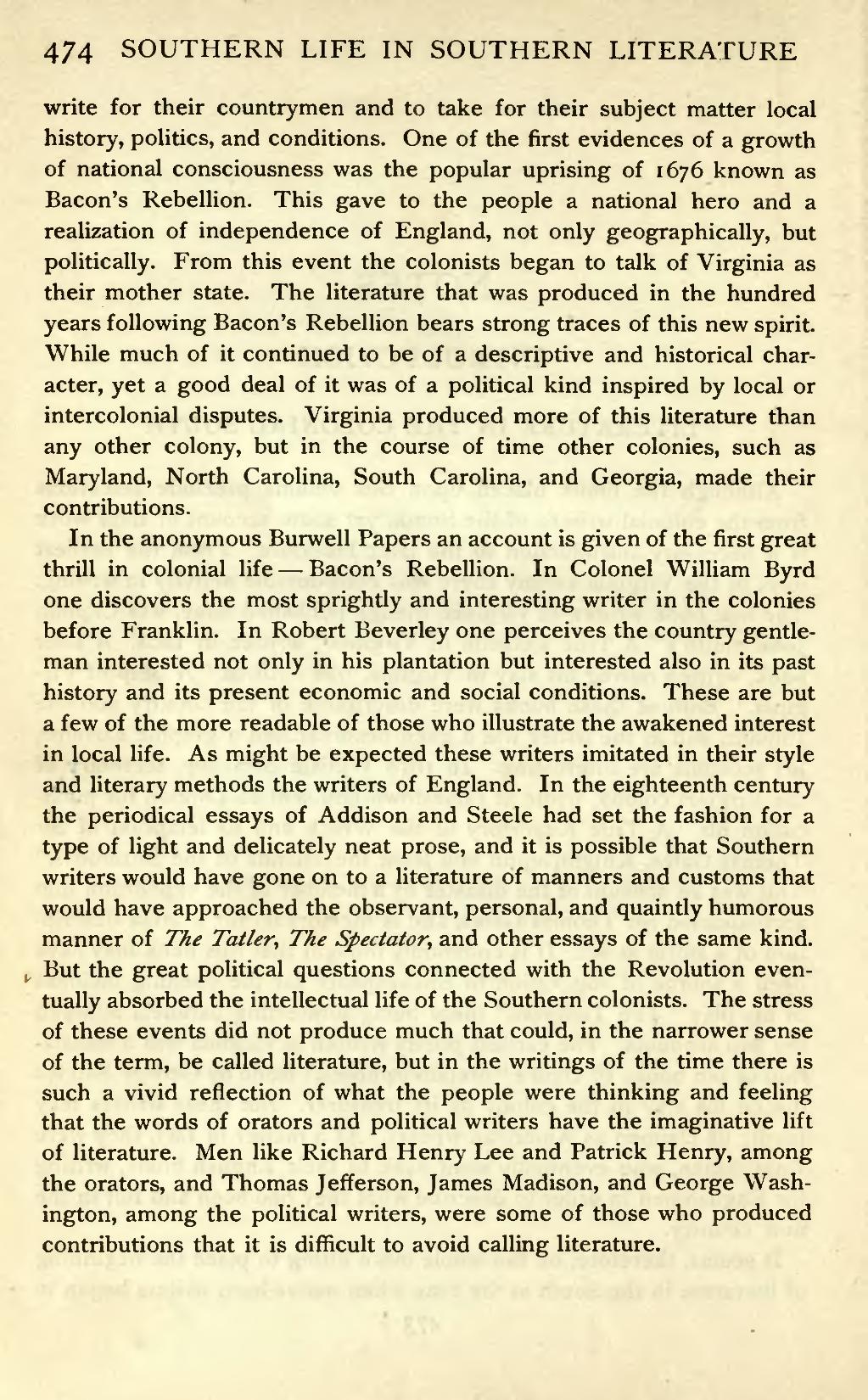write for their countrymen and to take for their subject matter local history, politics, and conditions. One of the first evidences of a growth of national consciousness was the popular uprising of 1676 known as Bacon's Rebellion. This gave to the people a national hero and a realization of independence of England, not only geographically, but politically. From this event the colonists began to talk of Virginia as their mother state. The literature that was produced in the hundred years following Bacon's Rebellion bears strong traces of this new spirit. While much of it continued to be of a descriptive and historical character, yet a good deal of it was of a political kind inspired by local or intercolonial disputes. Virginia produced more of this literature than any other colony, but in the course of time other colonies, such as Maryland, North Carolina, South Carolina, and Georgia, made their contributions.
In the anonymous Burwell Papers an account is given of the first great thrill in colonial life—Bacon's Rebellion. In Colonel William Byrd one discovers the most sprightly and interesting writer in the colonies before Franklin. In Robert Beverley one perceives the country gentleman interested not only in his plantation but interested also in its past history and its present economic and social conditions. These are but a few of the more readable of those who illustrate the awakened interest in local life. As might be expected these writers imitated in their style and literary methods the writers of England. In the eighteenth century the periodical essays of Addison and Steele had set the fashion for a type of light and delicately neat prose, and it is possible that Southern writers would have gone on to a literature of manners and customs that would have approached the observant, personal, and quaintly humorous manner of The Tatler, The Spectator, and other essays of the same kind. But the great political questions connected with the Revolution eventually absorbed the intellectual life of the Southern colonists. The stress of these events did not produce much that could, in the narrower sense of the term, be called literature, but in the writings of the time there is such a vivid reflection of what the people were thinking and feeling that the words of orators and political writers have the imaginative lift of literature. Men like Richard Henry Lee and Patrick Henry, among the orators, and Thomas Jefferson, James Madison, and George Washington, among the political writers, were some of those who produced contributions that it is difficult to avoid calling literature.
